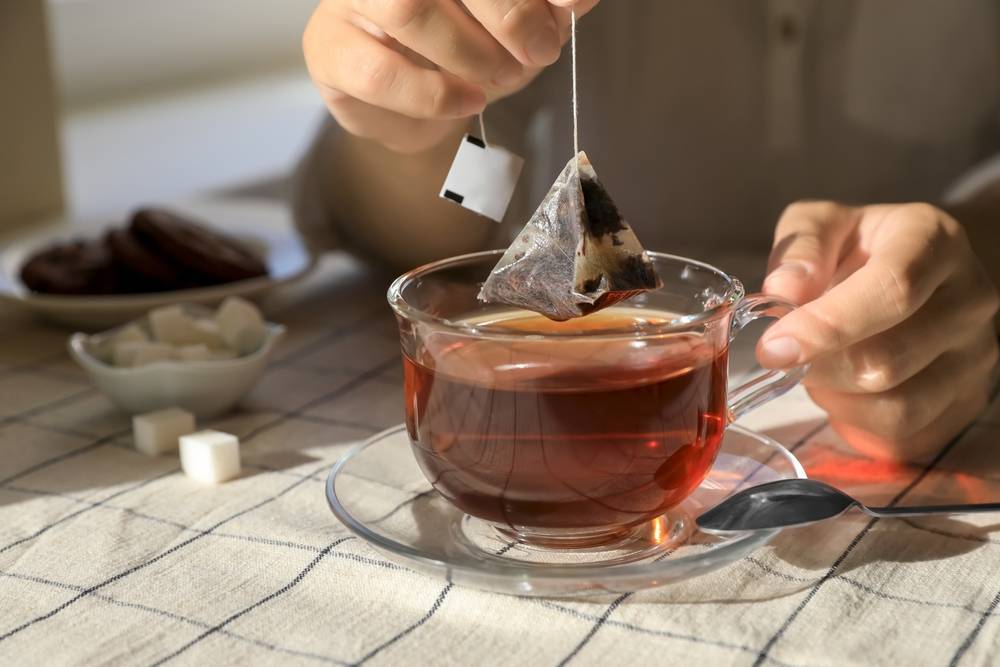Herbal Teas: A Staple in Asian Medicine
Herbal teas, known for their heat-clearing and detoxification properties, have been a cornerstone of traditional Asian medicine for centuries. In regions like Chaoshan, China, teas made from plants such as serpent grass, Asian plantain, and gotu kola are widely used to treat ailments like coughs, colds, and dysentery.
Similarly, in India, Ayurvedic medicine frequently incorporates herbal teas made from tulsi (holy basil), ginger, and turmeric to balance the body’s doshas and enhance overall well-being. In Japan, matcha and sencha teas, rich in antioxidants, are consumed to boost metabolism and improve mental clarity. These herbal infusions play a crucial role in maintaining health and treating various conditions in traditional practices across Asia.
Historical Significance of Herbal Teas
Herbal teas have a rich history in Asian cultures, deeply intertwined with traditional medicine practices. In traditional Chinese medicine (TCM), teas made from herbs like ginseng and ginger have been used for over 2,000 years. They enhance energy, improve digestion, and boost immune function. Ginseng tea increases vitality and reduces fatigue. Ginger tea alleviates digestive issues and combats colds.
In India, Ayurveda places significant importance on herbal teas for balancing the body’s doshas—Vata, Pitta, and Kapha. Tulsi, or holy basil tea, reduces stress, enhances respiratory health, and promotes longevity. Teas made from turmeric and ginger possess anti-inflammatory properties and support digestive health.
In Japan, the traditional tea ceremony, or “chanoyu,” exemplifies the cultural significance of herbal teas. This practice has been observed since the 9th century. Matcha, a powdered form of green tea, is central to these ceremonies. It is valued for its high antioxidant content. These antioxidants support cardiovascular health and mental clarity. Sencha, another popular Japanese green tea, is consumed daily for its refreshing taste. It also offers health benefits, including boosting metabolism and enhancing brain function.
In Southeast Asia, herbal teas are often used in traditional healing practices. In Thailand, lemongrass tea provides digestive and anti-inflammatory benefits. While in Indonesia, “jamu,” a traditional herbal drink, often includes turmeric and ginger to improve overall health and vitality.
Common Types of Herbal Teas and Their Benefits
Several types of herbal teas are prominent in traditional Asian medicine, each offering unique health benefits.
- Green Tea: Widely consumed across Asia, green tea is rich in antioxidants, particularly catechins, which help in preventing cell damage. Regular consumption of green tea is believed to boost metabolism, improve brain function, and lower the risk of cardiovascular diseases. Studies also suggest its potential role in reducing the risk of certain cancers.
- Ginger Tea: Known for its anti-inflammatory properties, ginger tea is commonly used to alleviate nausea, especially morning sickness during pregnancy, and improve digestion. It is also effective in reducing muscle pain and soreness, and managing osteoarthritis symptoms.
- Ginseng Tea: Ginseng tea is highly valued for its ability to enhance energy levels and reduce stress. It is also believed to improve cognitive function, boost immune response, and reduce the risk of certain cancers. In TCM, ginseng tea is often used to balance the body’s Yin and Yang.
- Chamomile Tea: Popular for its calming effects, chamomile tea is used to improve sleep quality and treat insomnia. It also has anti-inflammatory, antispasmodic, and mild sedative properties, making it beneficial for alleviating menstrual pain and digestive issues.
- Tulsi Tea: Also known as holy basil tea, tulsi is revered in Ayurveda for its adaptogenic properties, helping the body cope with stress. It supports respiratory health, boosts the immune system, and has anti-inflammatory and antioxidant properties.
- Gotu Kola Tea: In traditional Southeast Asian medicine, gotu kola tea is consumed for its cognitive-enhancing properties. It helps improve memory, reduce anxiety, and promote wound healing.
Preparation and Consumption in Traditional Practices
The preparation and consumption of herbal teas in traditional Asian medicine involve meticulous processes that enhance their therapeutic benefits. In TCM, practitioners begin by selecting high-quality herbs. They then dry and store the herbs in a controlled environment to preserve their potency. Typically, they steep the herbs in hot water for a specified period, allowing the active compounds to infuse into the tea. This method maximises the extraction of beneficial properties.
In Ayurvedic practice, preparing herbal teas often includes boiling the herbs in water. They may add other spices like black pepper or cardamom to enhance the effectiveness. For example, preparing turmeric tea involves boiling turmeric root with water, black pepper, and sometimes honey or lemon. This combination enhances the bioavailability of curcumin, the active compound in turmeric, and increases its anti-inflammatory benefits.
In Japan, the traditional tea ceremony, known as “chanoyu,” involves precise steps in preparing and serving matcha. Practitioners whisk powdered green tea with hot water using a bamboo whisk, creating a frothy, vibrant green tea. This ceremonial practice is about achieving a meditative state, emphasising mindfulness and respect for the tradition.
Furthermore, in Thailand, people make lemongrass tea by boiling fresh or dried lemongrass stalks in water, often with a bit of pandan leaf for added aroma. They consume this tea both hot and cold, depending on the weather and personal preference.
The consumption of herbal teas is often ritualistic, with specific practices dictating the time and manner of intake. In TCM, the timing of tea consumption is crucial. Practitioners often consume teas at specific times of the day to align with the body’s natural rhythms and maximise their therapeutic effects. Similarly, in Ayurveda, the dosha type and time of day determine which herbal teas are most beneficial.
Modern-Day Relevance of Herbal Teas
In contemporary times, the popularity of herbal teas has extended beyond Asia, with people worldwide embracing them for their health benefits. Modern research supports many traditional claims about these teas, providing scientific validation for their efficacy. For instance, studies have shown that green tea, rich in catechins and antioxidants, can improve cardiovascular health, enhance weight loss efforts, and reduce the risk of certain cancers. Its anti-inflammatory and neuroprotective properties also contribute to better brain health and reduced risk of neurodegenerative diseases.
Ginger tea, traditionally used to alleviate nausea and digestive issues, has been scientifically proven to reduce symptoms of nausea in pregnant women and chemotherapy patients. Its anti-inflammatory properties help manage arthritis and muscle pain, further supporting its traditional use.
Research backs the adaptogenic properties of tulsi tea, showing its effectiveness in reducing stress, improving cognitive function, and enhancing immune response. Studies highlight its role in maintaining blood sugar levels and supporting cardiovascular health.
Evidence supports chamomile tea’s calming effects, showing its ability to improve sleep quality and reduce anxiety symptoms. Its anti-inflammatory and antispasmodic properties benefit digestive health and alleviate menstrual pain.
Modern research validates the health benefits of matcha tea, including its high antioxidant content. Matcha’s unique combination of caffeine and L-theanine provides a calm alertness.
Integrating Herbal Teas into Modern Medicine
The integration of herbal teas into modern medical practices is an emerging trend, driven by growing recognition of their complementary health benefits. Many healthcare providers now recommend herbal teas as part of a holistic approach to health, acknowledging their potential to enhance conventional treatments and reduce side effects.
Green tea is often recommended for its cardiovascular benefits. Its antioxidants reduce bad cholesterol levels and improve heart health. This makes green tea a valuable addition to traditional heart disease treatments. Similarly, doctors frequently suggest ginger tea to patients with digestive issues or nausea. It provides a natural remedy alongside prescribed medications.
In mental health, chamomile tea’s calming effects support treatments for anxiety and insomnia. Its mild sedative properties help improve sleep quality. Chamomile tea offers a natural alternative to sleep medications. Tulsi tea, known for its adaptogenic properties, helps manage stress and improve mental clarity. It complements psychological therapies and stress management programmes.
Doctors increasingly include ginseng tea in treatment plans for chronic fatigue and cognitive decline. It enhances energy levels and cognitive function. This makes it a useful supplement for patients dealing with fatigue or age-related cognitive issues. Ginseng tea’s immune-boosting properties also support overall health and resilience against illnesses.
While herbal teas offer numerous benefits, their use in modern medicine requires careful consideration of potential interactions with medications. Some herbs can interact with pharmaceuticals, leading to reduced efficacy or increased risk of side effects. For example, ginseng may interfere with blood-thinning medications, while certain compounds in green tea can affect the absorption of drugs used in chemotherapy.
Potential Risks and Considerations
While herbal teas are generally safe and beneficial, there are potential risks and considerations to keep in mind. Some herbal teas can interact with medications, leading to adverse effects.
In addition, certain herbal teas may cause allergic reactions in some individuals. Chamomile tea, for instance, can cause allergic reactions in people who are sensitive to plants in the daisy family. It’s crucial to be aware of these potential allergies. Consult a healthcare provider before introducing a new herbal tea into your diet, especially if you have known plant allergies.
Excessive consumption of herbal teas can also lead to health issues. For instance, overconsumption of licorice tea can result in elevated blood pressure and lower potassium levels, posing risks to cardiovascular health. Similarly, consuming large amounts of peppermint tea may exacerbate gastroesophageal reflux disease (GERD) symptoms in some individuals.
Pregnant and breastfeeding women should exercise caution when consuming herbal teas. Certain herbs, like sage and parsley, stimulate uterine contractions and should be avoided during pregnancy. Additionally, women should use herbs such as fenugreek, commonly used to increase milk supply, under medical supervision to avoid potential side effects.
Children and the elderly, who may have more sensitive systems, should also be cautious with herbal teas. The appropriate dosage and preparation methods can vary. Seeking professional guidance ensures safety and efficacy.
It’s essential to source herbal teas from reputable suppliers to avoid contamination with harmful substances, such as pesticides or heavy metals. Ensuring that the herbs are of high quality and free from contaminants is crucial for safe consumption.
The Lasting Impact of Herbal Teas
The global acceptance and consumption of herbal teas highlight their versatility and wide-ranging health benefits. Whether used for their medicinal properties or simply enjoyed as a comforting beverage, herbal teas offer a natural and holistic approach to health. They provide a means to support physical and mental well-being, enhance immune function, and manage various ailments naturally.
As the popularity of herbal teas continues to grow, it is crucial to maintain an informed approach to their use. Consulting healthcare providers, understanding potential interactions, and sourcing high-quality herbs can help maximise their benefits and minimise risks. With careful consideration, herbal teas can be a valuable addition to a healthy lifestyle, bridging the gap between traditional wisdom and modern science.
References
- Lin, C., Zhang, X., Zhuang, C., Lin, Y., Cao, Y., & Chen, Y. (2020). Healthspan Improvements in Caenorhabditis elegans with Traditional Chinese Herbal Tea. Oxidative Medicine and Cellular Longevity, 2020, 1–13. https://doi.org/10.1155/2020/4057841
- Liu, Y., Hu, R., Shen, S., Zhang, Z., Zhang, J., Song, X., & Qiang, S. (2020). Plant diversity in herbal tea and its traditional knowledge in Qingtian County, Zhejiang Province, China. Plant Diversity, 42(6), 464–472. https://doi.org/10.1016/j.pld.2020.12.002
- Fu, Y., Yang, J. C., Cunningham, A. B., Towns, A. M., Zhang, Y., Yang, H. Y., Li, J. W., & Yang, X. F. (2018). A billion cups: The diversity, traditional uses, safety issues and potential of Chinese herbal teas. Journal of Ethnopharmacology, 222, 217–228. https://doi.org/10.1016/j.jep.2018.04.026
- Li, D. L., Zheng, X. L., Duan, L., Deng, S. W., Ye, W., Wang, A. H., & Xing, F. W. (2017). Ethnobotanical survey of herbal tea plants from the traditional markets in Chaoshan, China. Journal of Ethnopharmacology, 205, 195–206. https://doi.org/10.1016/j.jep.2017.02.040













